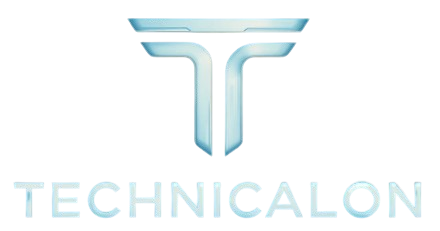The Role of Big Tech in Data Security
Apple, Google, and Meta serve as the gatekeepers of vast amounts of sensitive user information. However, when government authorities request access to this data, these tech giants often comply without significant resistance.
A recent report by Swiss software company Proton highlights the extent of this cooperation, revealing that over the past decade, Apple, Google, and Meta have provided the U.S. government with data from 3.1 million user accounts.
Surge in Government Data Requests
The demand for user data from major tech companies has increased dramatically. Proton’s report indicates a staggering 600% average rise in data requests over the last ten years. Among the Big Tech firms:
- Meta saw the most significant increase, with data requests rising by 675%.
- Apple followed closely, with a 621% surge.
- Google experienced a 530% increase in requests.
These companies comply with approximately 80-90% of U.S. government requests, potentially disclosing sensitive information such as user emails, files, messages, and other private data.
International Data Requests and U.S. Dominance
While governments from countries like Germany, France, and the United Kingdom have also increased their data requests, the U.S. remains the dominant force in demanding access to user information.
Raphael Auphan, Chief Operating Officer at Proton, expressed concern about this trend:
“All that’s required for the government to find out just about everything it could ever need is a request message to Big Tech in California. And as long as Big Tech refuses to implement widespread end-to-end encryption, these massive, private data reserves will remain open to abuse.”
Proton’s Approach to Privacy and Compliance

Proton, known for privacy-focused services such as ProtonMail, ProtonVPN, and ProtonDrive, presents itself as an alternative to mainstream Big Tech firms. Despite its stance on privacy, Proton also complies with government data requests, though with a crucial distinction.
A Sharp Increase in Proton’s Data Requests
According to Proton’s transparency report, requests from Swiss authorities have surged from 13 in 2017 to 6,378 in 2024. The company complied with 5,971 of these requests—a 93% compliance rate, even higher than that of Apple, Google, and Meta.
Proton’s Encryption Advantage
Unlike Silicon Valley giants, Proton employs robust encryption protocols that prevent even the company itself from accessing user emails, files, and VPN traffic. This means that even when authorities demand data, Proton has very little to provide.
A Proton spokesperson clarified:
“In no circumstances can we share emails, files, contact lists, calendar entries, or other personal content. We cannot share what we do not have.”
Legal Protections Under Swiss Law
Proton benefits from Switzerland’s strict privacy laws, which require foreign governments to go through Swiss courts before obtaining user data. This legal framework adds an extra layer of security for Proton users.
However, under certain conditions, Proton may disclose metadata such as IP addresses, email addresses, and recipient details.
The company remains firm in its privacy-first stance while adhering to national legal obligations. As a spokesperson stated:
“Proton is dedicated to protecting user privacy, but that does not mean it’s a safe haven for illegal activity. Proton is subject to national laws and has legal obligations, to which we are obliged to comply unless we have legal grounds to contest, which does not happen very often in Switzerland.”
The Ongoing Debate: Privacy vs. Government Access
The growing number of data requests and Big Tech’s high compliance rates raise serious concerns about user privacy. While companies like Proton offer enhanced security measures, the overall trend suggests that personal data remains vulnerable to government demands. As this debate continues, users and policymakers must carefully consider the balance between privacy rights and national security.
Frequently Asked Questions
What is the main claim made by Proton?
Proton claims that Apple, Google, and Meta are sharing more user data with the U.S. government than ever before.
Who is Proton?
Proton is a privacy-focused company known for its encrypted email service, Proton Mail, and VPN offerings.
What kind of data is being shared?
The data could include user communications, metadata, IP addresses, location history, and account details.
Why are tech companies providing more data?
Increased government requests, legal obligations, and national security concerns are key factors.
Are these companies complying voluntarily?
In most cases, they comply due to legal mandates like subpoenas, court orders, and national security requests.
Does this affect users outside the U.S.?
Yes, if user data is stored on U.S.-based servers or falls under U.S. jurisdiction.
Can users prevent their data from being shared?
Using encrypted services, VPNs, and decentralized platforms can help minimize exposure.
What laws allow the government to request data?
The Patriot Act, CLOUD Act, and Foreign Intelligence Surveillance Act (FISA) authorize such data collection.
Have these companies responded to Proton’s claims?
As of now, responses vary, with some companies maintaining they only comply with lawful requests.
What should users do to protect their privacy?
Users can opt for privacy-focused alternatives, use end-to-end encryption, and review privacy settings.
Conclusion
The increasing collaboration between tech giants like Apple, Google, and Meta with the U.S. government raises serious privacy concerns. Proton’s findings highlight how data requests have surged, impacting both U.S. and global users. While these companies often comply due to legal obligations, the trend underscores the need for greater transparency and stronger user privacy protections. To safeguard their data, users should consider encrypted alternatives and remain vigilant about their digital footprint. Ultimately, this issue emphasizes the ongoing battle between privacy rights and governmental surveillance.

